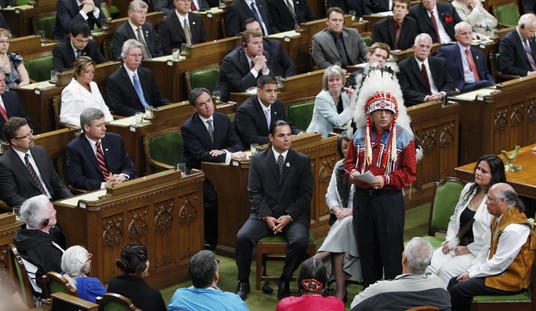“Home Cooking and Civilization” was explored by Jonah Goldberg yesterday in his latest G-File, a summer rerun alas, but a worthy topic nonetheless:
It is hard to fathom all of the trial-and-error that has gone into any great cuisine. Imagine how long it must have taken to come up with the idea that food should be cooked in the first place. How many deaths or vomiting sessions stemming from eating spoiled raw meat led to that discovery? How many mistakes were made – and learned from – in the process of aging and curing meats and fish? How many corpses are long since buried and decomposed thanks to someone working out the technical details of food storage? And then there’s the whole wonderful universe of flavor and technique that defines any truly distinctive cuisine. This much salt, that much paprika. Age the cheese this long for this taste, this much longer for that taste. Cuisines are the manifest product of wars, invasions, famines, revolution, religious awakenings, boom times, and scientific breakthroughs. The culinary lessons learned from these momentous times are humbly recorded, without much commentary, in cookbooks. Put it all together and Julia Child’s Mastering the Art of French Cooking is not merely akin to a time capsule, it’s a memory back-up, an auto-save of a document still being written. At least 99 percent of the things we know are things other people figured out first. Our manners, morals, technology, language, culture come to us on an assembly line that stretches off into prehistory with laborers in animal skins at the front and lab coats at the end.
Even rugged-individualist survivalists living completely alone in the woods somewhere are plugged into a support network of millions of human beings who came before him. Nearly every single thing he does alone in the woods was figured out for him by someone else. He didn’t discover how to start a fire. He probably didn’t forge his own gun or knife, and even if he did, he didn’t learn the techniques for doing so all by himself.
One of the ways we plug into all of this knowledge, how we transfer the data banks of civilization onto the empty barbarian hard drive of humanity, is at the dinner table. We teach our children not to be savages by eating with them and including them in the process of cooking. Food is primal, and by diluting and harnessing the primal urge to eat we start turning barbarians into less-than-barbarians.
Thursday while having lunch alone (my wife was with a client at a deposition), I poked around the YouTube channel on the Roku box, and came across a 2002 speech from Tom Wolfe on urban renewal that I had never seen before, which dovetails perfectly with Jonah’s take on the power of food. Wolfe argues, slightly tongue in cheek, but actually pretty convincingly, that Manhattan’s restaurants are the only thing keeping a number of corporations from leaving the massively over-regulated and over-taxed city. (Scroll to 14:30 if TubeChop doesn’t take you there automatically):
.
Keeping civilization and America’s greatest city functioning. Food: Is there nothing it can’t do?
(To subscribe to Jonah’s emailed G-File, click here.)










Join the conversation as a VIP Member